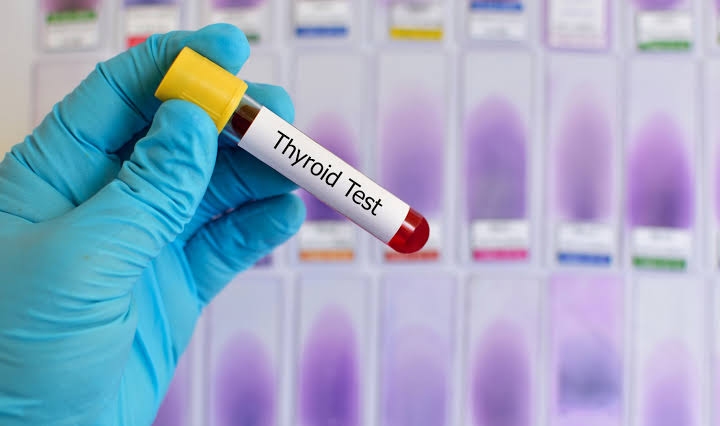
Optimising Thyroid Health: Strategies for Balancing Total T3, Total T4, and TSH
- Healthcare
- April 26, 2024
Thyroid issues can lead to various symptoms affecting your daily life. Luckily, there are several effective ways to restore balance to your thyroid hormones and optimise thyroid health.
The thyroid gland plays a crucial role in regulating numerous body processes, particularly those related to metabolic function. Maintaining the optimal function of the thyroid gland and ensuring balanced levels of its primary hormones, triiodothyronine (T3) and thyroxine (T4), are essential for overall health. Conditions such as hypothyroidism and thyroiditis can occur due to abnormal increase or decline in the serum levels of thyroid hormones. Therefore, it is imperative to maintain the optimal balance of various thyroid hormones. This can be achieved by adopting the effective strategies mentioned below.
How to Balance Thyroid Hormones?
Some of the proven strategies for optimising thyroid health and maintaining the balance of thyroid hormones in your body are:
- Keep an Eye on Your Thyroid Function
The initial step in understanding whether your thyroid hormone levels are within the normal range is to measure them. This is achieved through a thyroid function test, also referred to as a thyroid panel. This blood test assesses your levels of T3, T4, and thyroid-stimulating hormone (TSH). Fortunately, the t3 t4 tsh test price is not high, which makes it accessible to everyone.
If the initial blood test indicates hormone levels outside the normal range, then your healthcare provider may recommend further tests, which could include thyroid ultrasounds, scans, additional blood tests, or a radioactive iodine uptake test (RAIU). Once any abnormal results are identified, you can take the necessary steps recommended by your healthcare provider to address your thyroid hormone levels accordingly.
- Modify Your Diet
Your diet can affect the levels of your thyroid hormones. While there isn’t a specific diet prescribed for individuals with thyroid disease, there are ways to potentially influence hormone levels through dietary choices. To help balance your thyroid hormones at home, consider the following:
- Reduce Sugar Intake: A diet high in sugar can have various negative effects, including abnormal thyroid hormone levels.
- Adjust Selenium Intake: Selenium, an essential trace mineral, plays a role in thyroid hormone synthesis. The thyroid gland contains a higher concentration of selenium than any other organ, highlighting its importance for thyroid health. Foods rich in selenium include rice, Brazil nuts, fish, and meat. Consult your healthcare provider to determine the appropriate selenium intake.
- Introduce Probiotics: Emerging research suggests a connection between gut health and thyroid function. Probiotics, which are live bacteria that support gut health, may help maintain normal thyroid hormone levels. Probiotics can be found in fermented foods such as miso, yoghurt and kimchi.
- Assess Iodine Intake: Iodine is essential for thyroid hormone production. Common sources of iodine include sea greens like seaweed and kelp.
Remember to consult a healthcare provider before making significant changes to your diet, especially if you have a thyroid condition.
- Regulate Blood Sugar Levels
Another crucial step in balancing hormones and supporting thyroid health is to regulate your blood sugar levels. Given that blood sugar levels can significantly impact both hormones and thyroid function, this approach is highly effective. Fortunately, you can largely control your blood sugar levels by managing your diet. It’s important to avoid foods and beverages that are high in sugar and carbohydrates. Vegetables should be prioritised, particularly those with high fibre content, as they play a key role in regulating blood sugar levels.
- Try Stress-management Techniques
Stress is a natural aspect of life. However, chronic stress can lead to various health issues, including hormone imbalance. The thyroid gland produces hormones crucial for metabolism, and heightened stress levels can disrupt its function. This disruption can result in symptoms such as weight gain and fatigue. Learning effective stress management techniques is vital for maintaining optimal thyroid function. There are numerous methods available, like meditation, yoga, and breathing techniques. So, it’s important to discover what works best for you and incorporate it into your daily routine. Allocating some time each day to relax and unwind can significantly contribute to the health of your thyroid gland.
- Exercise Regularly
Engaging in daily exercise is a fantastic way to enhance overall health and well-being. Regular physical activity contributes to improved circulation, reduced stress levels, and healthy weight management, all of which are crucial for maintaining optimal thyroid function. Start by setting achievable exercise goals, such as aiming for at least 30 minutes of moderate exercise every day of the week. Walking, yoga, cycling, and strength training are excellent options to consider. If necessary, you can divide your exercise routine into smaller sessions throughout the day to suit your schedule. The key is to discover an exercise regimen that you can enjoy and sustain over the long term.
Maintaining optimal thyroid health is essential for overall well-being. When it comes to managing thyroid health, regular screening is the most effective measure. Since t3 t4 tsh test price is not high, people who are at risk of thyroid dysfunction or those experiencing symptoms linked to the latter can undergo the test regularly. Besides regular testing, dietary adjustments, blood sugar regulation, stress management, and regular exercise can also play a key role in achieving hormonal balance and supporting thyroid function.